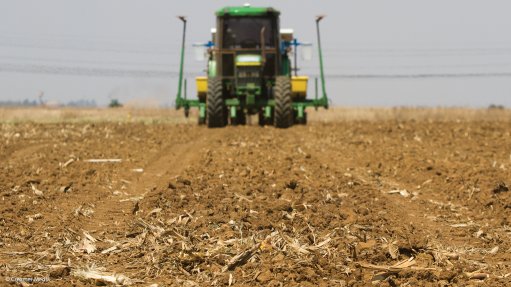
PRICEY PRACTICE The US-developed products have been evaluated in South Africa for two growing seasons, with one year of CFTs in South Africa costing about R6.5-million
Photo by: Duane Daws
Agriculture company Monsanto has applied for the extension of the confined field trial (CFT) permits of three genetically modified maize products involved in CFTs in four provinces across South Africa.
A decision is expected prior to the start of the country’s planting season, which takes place around October.
The US-developed products have been evaluated in South Africa for two growing seasons, with one year of CFTs in South Africa costing about R6.5-million.
“This will, thus, be the third year of trials for these products in South Africa and follows extensive product testing in the US.
“In South Africa, a minimum of two seasons of local efficacy data is generally required to apply for commercial release, so the trial extension has been requested to generate supplementary data should it be needed,” Monsanto explains.
A general release permit from the Genetically Modified Organisms (GMO) registrar will enable controlled commercialisation of the products in South Africa.
The company tells Engineering News that, to date, no official notice of objection has been received from the Registrar of the GMO. “The company is, however, aware that certain interest groups might object to the trials.”
Through the CFTs, Monsanto aims to confirm protection of the genetically improved maize, developed in the US, against maize insect pests and abiotic stress conditions, and its tolerance to herbicides containing glyphosate.
The first genetically improved multi-event stack maize product, developed through conventional breeding of maize lines developed through biotechnology to produce hybrids, yields maize plants that are more tolerant to abiotic stress conditions and provide effective above-ground insect protection and tolerance to herbicides containing glyphosate.
The second multi-event stack product was also developed through conventional breeding of maize lines developed through biotechnology to produce hybrids and its maize plants are more tolerant to abiotic stress conditions and provide effective above-ground insect protection.
The third product, also developed through conventional breeding of maize lines developed through biotechnology to produce hybrids, has been developed to enable maize plants to be more tolerant to abiotic stress conditions and provide effective above-ground insect protection.
Two of the products being tested are part of the Water Efficient Maize for Africa (Wema) project, a public–private partnership created to enhance food security in sub-Saharan Africa through developing and deploying water-efficient maize royalty-free to the smallholder farmers.
Monsanto’s CFTs will take place in the Hopetown district of the Northern Cape, the Orania district of the Free State, the Lutzville district of the Western Cape and in Malelane, Mpumalanga, on privately owned land, as well as an Agriculture Research Council site.
The trial areas, 1 ha to 10 ha in size, are immediately surrounded by environments that may include vegetables, maize, soya beans, vineyards and natural veld.
After the CFTs are completed, the trial sites will be left fallow or rotated to a different crop in the following growing season. Volunteer plants will be destroyed.